#BUCPUA Professor reveals how to land the best job ever

On September 29, more than 250 policymakers and job seekers gathered at the 8th Annual Massachusetts Green Careers Conference, held at the DCU Center in Worcester. BU City Planning and Urban Affairs (BUCPUA) Adjunct Faculty Professor Eugene Benson, JD addressed the entire crowd and also led a smaller breakout session. Benson compelled the audience to pursue the best job ever – municipal conservation agent.
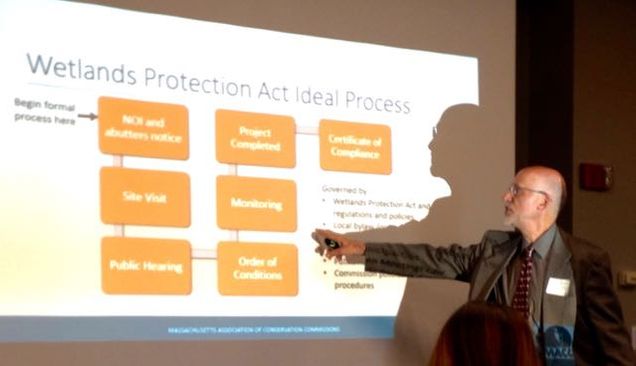
Passionate degree candidates in the #BUCPUA Program assess the social contexts and economic structures that influence the management of fragile open spaces, such as wetlands. The #BUCPUA Program provides students with high-demand tools and pertinent skills to excel as environmental planners. Relevant course offerings include UA 521 Environmental Law, UA 617 Applied Sustainability, UA 654 Geographic Information Systems for Planners, and UA 629 Urbanization and the Environment. Students can complement their Master of City Planning or Master of Urban Affairs degree with a Certificate of Applied Sustainability.
Aside from teaching law to #BUCPUA students, Benson is the Executive Director of the Massachusetts Association of Conversation Commissions (MACC). MACC’s tenants include advocacy, education, and conservation, and the state leader in providing education and training to more than 2,500 conservation commissioners. Benson urged participants to fully grasp the wetlands crisis in the United States, as half the country’s wetlands have disappeared since settlement by Europeans. This loss of wetlands has exacerbated flood conditions, particularly in states like Iowa, which has lost 80 percent of its wetlands. Wetlands perform invaluable functions by buffering floodwaters, capturing carbon, and providing habitats that sustain biodiversity.
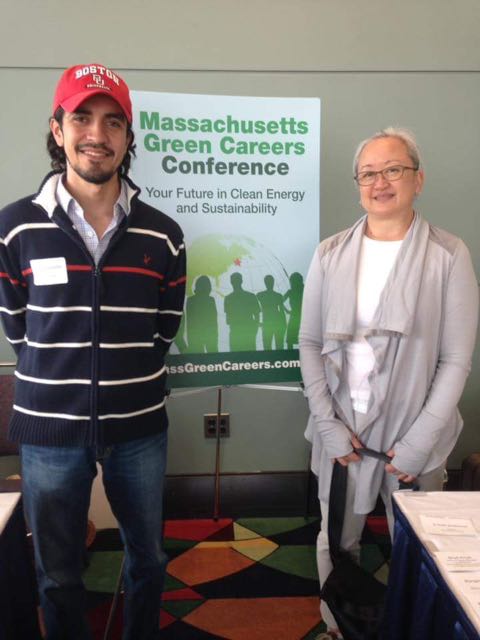
As municipal conservation agents, citizens have a direct stake over the protection and management of these vital, yet vulnerable, areas that envelop land, water, and biological resources. Conservation agents are full-time positions that support and guide all-volunteer municipal conservation commissions. On average, volunteer conservation commissions experience a 10 percent annual turnover, which underscores the value of a municipal conservation agent who can create a stable foundation for long-term planning and land management.
At the state level, the Massachusetts Department of Environmental Protection, the Massachusetts Department of Conservation and Recreation, and Massachusetts Regional Planning Agencies also offer full-time positions that directly influence the protection of open spaces. Qualifications required for state or municipal conservation agent positions include a thorough understanding of environmental law and superb communication skills that conform when influencing different stakeholder groups. Organization skills, creativity, and flexibility also help conservation agents preserve open spaces against myriad external factors, including impacts of climate change and ongoing economic development.
Aside from teaching law in the #BUCPUA Program, Professor Benson also instructs courses at the BU School of Public Health.
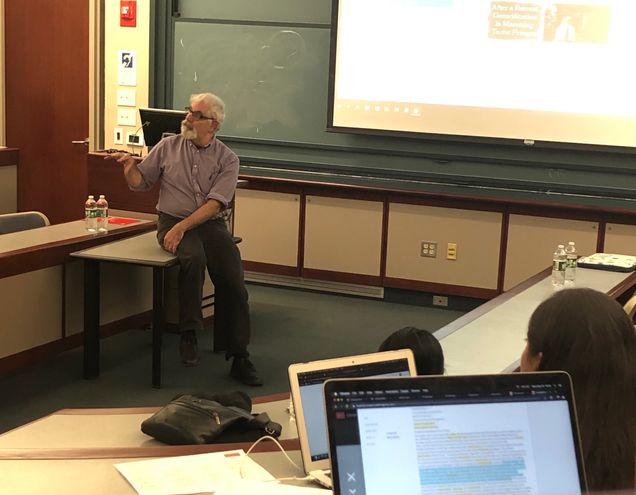
BUCPUA Hosts an Insightful Lecture on Library Research and Academic Writing

On Monday, September 16th, students from Dr. Madhu Dutta-Koehler’s UA515 History, Theory and Planning Practice course gathered for a lecture about how to conduct library research and improve their academic writing. Ken Liss, a librarian and Head of Liaison & Instruction Services at BU’s Mugar Library, and Dr. William Koehler, Dean of the School of Business & Communication at Regis College, conducted the session giving students valuable information to further their academic career.
Librarian Ken Liss led the first part of the lecture discussing how to use online library resources to their fullest potential in a calm demeanor. Liss explained how to translate interests into academic research through skimming a multitude of articles and sources from online databases. BU offers an abundance of online databases to students through Mugar Library and Liss emphasized the importance of using these databases to explore interesting topics for research.
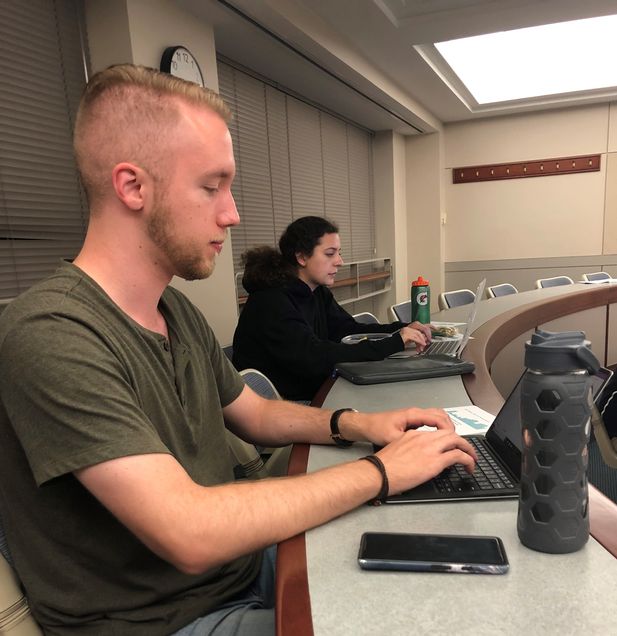
After explaining how to use online databases and why finding a specific topic is important, Liss got students involved. Liss distributed a worksheet where students had to use databases to find an interesting topic they could research further. After giving students some time to explore, Liss asked for volunteers to explain what topic they found and how they got to that point. Many students were eager to share. One student explained how their search started broadly with the topic of sea-levels rising and Boston, which led them to an article specifically about historical extensions of Logan Airport which is on the water.
Liss was exceptionally friendly, ending with the sentiment that “librarians love to help and we don’t give grades!” He welcomed students to stop by his office if they had any research questions.
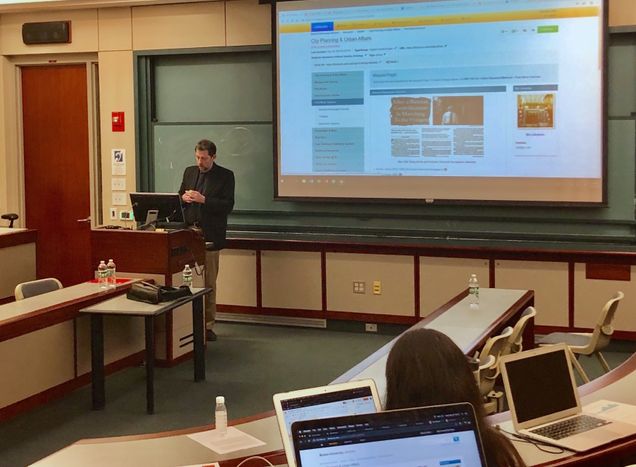
After a short break, the next presenter, Dr. William Koehler, began to discuss techniques for academic writing. The class was kept engaged through Dr. Koehler’s lively energy and animation. Dr. Koehler stressed the importance of good writing as “the key to professional success,” by identifying types of academic writing, how to outline, and how to construct arguments.
The presentation highlighted the “Four Cs” -- clarity, conciseness, cogency, and correctness -- as major factors to excellent academic writing. Dr. Koehler also discussed the significance of analyzing academic sources, organizing one’s own work, and avoiding fallacies such as confirmation bias or circular reasoning. As Dr. Koehler repeated throughout the night, “writing is a process,” and therefore, students should carefully research, outline, and edit their arguments.
The lecture was an insightful explanation on the importance of research and writing, where students gained knowledge from experts on building their academic and professional careers.
Delanie Fico, CAS '21
BUCPUA Student Orientation Provides Community and Connection for New Students
On the evening of Friday, September 6th, Bay State Road filled with new students excited to attend BUCPUA’s Fall 2019 Student Orientation. Students were welcomed into their new BU community by Mary Ellen Mastrorilli, PhD, Chair ad interim of the Applied Social Sciences Department.
Program Director Professor Madhu Dutta-Koehler, PhD, and Program Manager Andrea Ciminelli opened the evening with a presentation about the program’s history, degree requirements, faculty and the Urban Planning Association (UPA), and talked about the resources available through the program and around BU. Ben Cares, UPA President and Masters of Urban Affairs (MUA) Candidate, introduced UPA as providing students and alumni with support, networking opportunities, and community. Cares encouraged students to get involved through the UPA Facebook group and upcoming events such as the Sustainability Festival and First Fridays.
Sustainabiltiy@BU’s Engagement Manager, Gabriela Boscio Santos, presented on the Sustainability Office’s role on campus and how students can live more sustainable lives. Santos spoke about BU’s implementation of the campus wide Climate Action Plan, items recyclability, and personal sustainability. Key accomplishments Santos discussed were BU’s 13% decrease in waste and a 98% increase in green cleaning.
To discuss BUCPUA’s diversity and cultural proficiency, Adjunct Professor Eugene Benson, JD, presented a powerpoint on diversity’s relation to culture and its importance for planners. Adjunct Professor Dr. Jim O’Connell, PhD, discussed the Jane Jacob’s Walk of the Seaport District, Boston that he led the following Saturday, September 7th. The walking tour is part of a larger organization inspired by urban activist and writer Jane Jacobs.
Each new student then introduced themselves to the room. Light refreshments were served and students mingled with faculty and UPA members to bring the night to a close. Students left their orientation with delight and enthusiasm for their coming semester as a part of the BUCPUA community.
Delanie Fico, CAS '21
Climate and Community: Green Infrastructure for the Triple Bottom Line
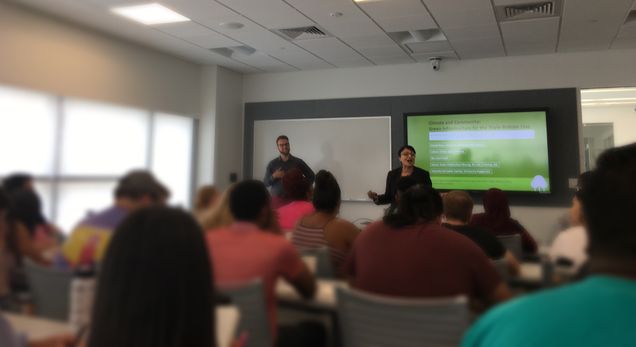
BOSTON -- Dr. Madhu Dutta-Koehler, Associate Professor of the Practice and Director of the City Planning and Urban Affairs program at the Boston University Metropolitan College, worked with Lead for America to organize and host the Climate And Community: Green Infrastructure for the Triple Bottom Line workshop. Attendees were Lead for America Fellows, master's students participating in two-year paid fellowships in local governments facilitated by the Lead for America program.
The workshop opened with introductions and a brief explanation of what each student was focusing their studies and projects on. These included focuses across the board, from transit and public transportation to community and youth engagement, and from communications to governmental auditing. The areas which came up most often were housing, education, and ecological sustainability.
The theme and subject of the workshop was a concept known as the triple bottom line. “It’s the intersection of the economic, the environmental, and the social aspects of a community,” said Dutta-Koehler, “and without taking into account a balance of these three, our work is ineffective.”
The concept of the triple bottom line is used by planners to guide their efforts and ensure the work they are doing is as efficient, effective, and universally equitable as possible. The workshop covered this crucial intersection and its application to urban planning for sustainability and the offset of climate change.
To illustrate the importance of the triple bottom line, Dutta-Koehler listed examples of failed projects. These included the Ford Foundation’s work in Africa to deliver clean water to a village without considering the cultural importance of water-fetching to the women of the community, and the anomalic decision of the people of Isle de Jean Charles, Louisiana, to remain on their lands despite scientific evidence of impending environmental disasters and the offer of governmental aide in evacuation. In both these cases, the social element of the triple bottom line was not properly catered to in urban planning efforts.
“What’s more important than technology is an understanding of the community. You could have the most cutting edge engineering in the world, and it wouldn’t mean a thing if the people won’t engage with and respond to it,” Dutta-Koehler said.
Dutta-Koehler stressed the importance of communications in planning careers. “You need to speak the language of the people when framing the problem. While a community of indigenous peoples might be inclined to protect wildlife, the potential extinction of a species of rattlesnake isn’t going to change the minds of or convince a change of lifestyle in average American people living in urban areas. You have to consider what’s going to make the community care. The reality is that most people are going to be much more motivated when they hear they won’t have clean drinking water in five years than when they hear a snake will go extinct.”
Throughout Dutta-Koehler’s portion of the presentation, the students discussed concerns and shared ideas on conservation, community building, and more. Dutta-Koehler advocated strongly for a utilitarian approach to city planning.
“Always try to do the most good for the most people,” she said. “Prioritize the equity of outcomes above all else.”
Her portion of the workshop concluded with an explanation of green infrastructure, a strategically planned network of semi/natural areas designed and managed to deliver a wide range of ecosystem services, and with a discussion of the benefits it can bring to a community or region.
After a short break, Benjamin Cares, MCP Candidate at Boston University and Urban Planner for the City of Chelsea, MA, took over the stage.
Cares discussed his background and his position as an Urban Planner for the City of Chelsea, and gave advice to those entering the field. He discussed how to approach certain challenges and issues, and answered questions and concerns the students in attendance brought up.
Cares echoed the main points of Dutta-Koehler as he emphasized the importance of education and community outreach in city planning and urban affairs. He said, “opening a conversation with the community is absolutely crucial.”
Climate And Community: Green Infrastructure for the Triple Bottom Line was held on July 11th at the Boston University Metropolitan College. To learn more about the Boston University City Planning and Urban Affairs program, visit www.bu.edu/cityplanning. To learn more about Lead for America, visit www.lead4america.org.

Brian Creamer — The Student has Become the Teacher
Brian Creamer’s Reflection on Past, Present and Future with Boston University’s City Planning and Urban Affairs Program.
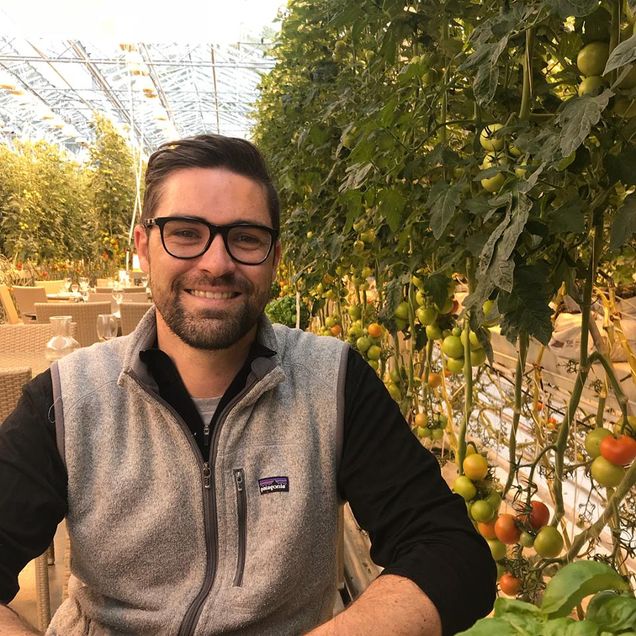
Brian Creamer is a Boston native and an expert when it comes to city planning. He has an undergraduate degree in landscape architecture and a Master of City Planning. Brian is a Massachusetts Municipal Vulnerability Preparedness (MVP) provider, a Sustainable Sites Institute (SITES) Accredited Professional, and a member of the American Institute of Certified Planners (AICP). He is currently employed as a Project Designer with Nitsch Engineering.
Brian’s breadth of work over his 8 years of sustainable planning and design experience spans a variety of project types. From campus and institutional master planning to municipal open space and resilience planning efforts, Brian has consistently shown keen interest in the intersection of ecology and cities. He is especially focused on designing sites which sustainably integrate stormwater into the landscape.
Some of his recent projects include the Princeton University 2026 Campus Plan, DC Water Clean Rivers Project, Upper Harbor Terminal in Minneapolis, and the Moakley Park Vision Plan. He believes that the best way to build community is to get involved locally. Brian has worked on numerous small projects, grant applications, and planning processes in his current home of Malden, MA, and served as the Chair of the Malden Mayor's Advisory Committee on Walkability, on the Malden Open Space and Recreation Plan Committee, and is a Commissioner with the Malden Conservation Commission. He was also named APA-MA Emerging/Rising Planner.
The Student
After completing his undergraduate education at Pennsylvania State University, Brian went on to graduate from the Masters of City Planning degree program at Boston University in 2015.
“The City Planning and Urban Affairs Program’s flexible scheduling allowed me to keep a full time job in real estate development while pursuing my degree,” Brian said. “I was encouraged to explore all aspects of urban planning, from public health to budgeting and even urban design challenges. Upon graduating, I found my current position as a project designer with the planning department at Nitsch Engineering, and I entered the workforce prepared to make a difference.”
Brian reflected that, as a student, he spent too much time focusing on a small number of specialties instead of rounding out his skill set. Looking back, Brian would you tell his younger self that planners, as generalists, should have working knowledge of a multitude of topics.
“From urban design issues, transportation modeling, conservation, site development, historic preservation, place-making, [to] public engagement, planners are expected to have an understanding of it all the moving pieces that make up our cities and regions,” Brian explained.
Throughout his undergraduate and graduate education experiences, Brian had several teachers and professors who stood out as inspirational.
“I had many excellent teachers both in undergrad and during my time at BU. Madhu has served as a mentor both professionally and personally and inspired me to push myself towards teaching. Yesim has also served as an important mentor and has helped me make the transition to becoming an adjunct instructor. I also keep a connection with professors from my undergraduate education, Eliza Pennypacker, the Department Head at Penn State's Stuckeman School Landscape Architecture.” Dr. Madhu Dutta-Koehler is an Associate Professor of the Practice and Director of the City Planning and Urban Affairs Program, and Dr. Yesim Sungu-Eryilmaz is an Assistant Professor in the Program.
He added a bit of advice, “One of the takeaways I have for upcoming graduates from my first few years of working professionally is to keep in touch with your professors, they often become some of the best resources and sounding boards as you move into your career.”
The Teacher
Brian Creamer is now a Senior Planner at Nitsch Engineering and an Adjunct Faculty member with Boston University's City Planning and Urban Affairs Program. He teaches courses on planning topics including architecture and urban design. Brian just finished teachingUA 580: Boston Experience: The Role of Architecture in Creating a Sense of Place for the first time this past fall 2018 semester. He was also a facilitator for Madhu’s Urban Studies Capstone course this past spring.
When asked why he decided to start teaching, Brian replied, “I had some great experiences returning to BU after graduating to guest critique final and midterm presentations. Also, guest critiquing studio courses at Boston Architectural College sparked my interest in teaching. The event that really pushed me to think more seriously about teaching was when I was asked to construct UA805 - Capstone with Yesim in 2017.”
As a teacher, Brian is motivated by students who push themselves outside of their comfort zones. He said, “Many students in the BU MET MCP and MUA programs are accessing and grappling with the tough questions in planning for the first time, and their thoughtful, nuanced approach to problem solving keeps me motivated.”
Brian thinks it’s incredibly important for students to understand just how transferable the skill sets that come with a degree in planning are. Brian believes planning is in a unique space as a profession, and the skills planners develop are useful in many different sectors of the economy. He thinks graduating students might consider looking to municipal planning, regional planning or even real estate development as almost 'default' career paths, and encourages his students to seek and pursue careers outside of the traditional path.
“Planners have the ability to incorporate the implications of long-range consequences and forecasts into our work,” Brian said. “These skills are so transferable, and really critical, for many fields outside of typical 'planning' jobs. Students should recognize how valuable their skill sets are, and leverage them in non-traditional sectors.”
Brian says the most important lesson his students have taught him is to be prepared. He said, “Class time is so important, and since the MUA and MCP degree classes typically only meet once a week, making sure that we make the most of our in-person time helps bring the entire class' learning forward. As teaching increasingly moves towards using more tools to meet remotely, communication via email, and using tools provide passive feedback on drafts and assignment submissions, my students have definitely made me realize how critical in-classroom and on-site time is.”
When asked how the transition in the classroom from student to teacher went, Brian replied that it was tough at first, but he definitely feels like he needs a few more years under his belt to have a good answer to the question.
The Future
Brian has now entered a new - and arguably the most exciting - chapter of his life: fatherhood. He now finds himself busier than ever, but also excited for the future.
Moving forward, in terms of his students, Brian thinks there is a strong need in the industry for more people who really understand and excel at public engagement.
“Being able to effectively gather disparate voices, make sure varying interests are heard is a very important skill in contemporary planning,” Brian insists.
Similarly to how he answered on the transition from student to teacher in the classroom, Brian believes the effect of fatherhood on his teaching career will take some time to show effects. “I don’t know,’ he laughed, when asked if he will approach teaching differently now. “Maybe more on this in a few years.”
Jill Serron, COM '20

BUCPUA’s Kevin Flakes Named BU Initiative on Cities’ 2019 Summer Fellow

The Boston University (BU) Initiative on Cities (IOC) recently shared the 2019 class of Summer Fellows. Fellows work closely with local governments on projects that demonstrate a commitment to urban leadership. Kevin Flakes was named one of BU IOC’s Summer 2019 Fellows. Kevin graduated from University of Massachusetts, Dartmouth with a BS in Accounting, and is currently pursuing a master’s in Urban Affairs with special interest in urban inequalities, opportunity and capacity building strategies.
Before entering the program, Kevin consulted for banking clients such as Santander Bank and Brown Brothers Harriman as a business analyst. In that role, he helped deliver solutions to mitigate risk, eliminate inefficiencies, implement new systems and the improve the customer experience. Kevin looks to combine his experience as a business analyst with his interests to deliver efficient and equitable solutions for the city of Providence.
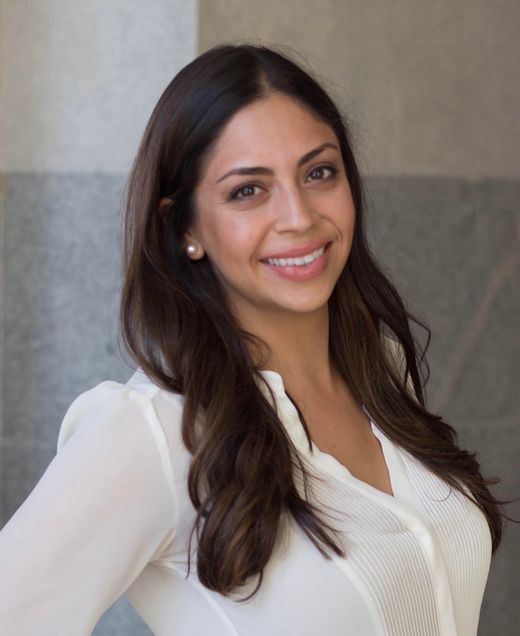
BUCPUA’s Natalia Chavez Named BU Initiative on Cities’ 2019 Summer Fellow

The Boston University (BU) Initiative on Cities (IOC) recently shared the 2019 class of Summer Fellows. Fellows work closely with local governments on projects that demonstrate a commitment to urban leadership. Natalia Chavez was named one of BU IOC’s Summer 2019 Fellows. Natalia earned her bachelor’s degree from Santa Clara University, is completing the Master in City Planning (MCP) Program at Boston University, and will begin the Master in Public Administration (MPA) Program at the Harvard Kennedy School in the fall of 2019. At Boston University, she served as the Public Affairs Officer for the Urban Planning Association from 2018-2019. She is also a Fellow with Net Impact Racial Equity, StartingBloc, and New Leaders Council.
Natalia Chavez is a co-founder and Communications and Outreach Director at Urbanability, a non-profit organization that strives to build livable and equitable urban communities by focusing on research, project implementation, advocacy, and policy formation. Natalia is also a Program Assistant at the Harvard Ash Center for Democratic Governance and Innovation, where she works on democracy programing and the legislative negotiations project. Previously, Natalia served as a Research and Policy Analyst at Covered California, the health insurance marketplace under the Affordable Care Act, where she conducted data management and quantitative analysis on consumer enrollment data. Natalia has also worked on state election campaigns and as a Press Aide for the Democratic Caucus of the California State Assembly.
With a background in data analysis, public policy, and community building, Natalia is committed to building healthy communities by addressing social policy problems and increasing access to economic opportunities for all. She is interested in increasing economic opportunities, health and wellbeing, access to education, and political representation for underserved communities.
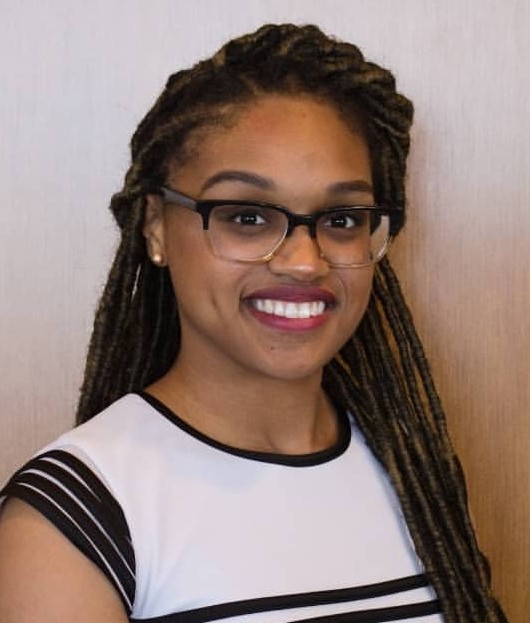
Boston University MUA Candidate Appointed to Citizens’ Commission
Joyce Sanchez, MUA'19, was appointed by Attorney General Maura Healey to the Citizens’ Commission to advance the 28th Amendment. Joyce obtained a Bachelor of Arts degree in political science with a minor in journalism from Georgia Southern University. As an undergraduate, she served in several leadership roles such as Service-Learning Facilitator, Alternative Break Student Board Member, Model United Nations Student Organization (Model UN) Delegate, and Founder/President of The 100 Collegiate Women of America, a women empowerment organization devoted to creating leaders, economic development, and serving the community.
While at Boston University, Joyce is pursuing her Master of Urban Affairs and served as 2018-2019 President of the Boston University Urban Planning Association. Joyce joined the Humphrey Fellowship Program at Boston University in July 2018 as a Senior Program Coordinator. Previously, Joyce worked to increase the number of low-income, first-generation college and underrepresented high school students who complete higher education as a College Advisor at the Boston Day and Evening Academy under the CACBU partnership. In her professional and personal life, Joyce remains active in the civic, social, and non-profit industries.
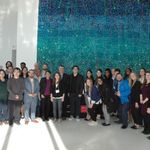
BUCPUA Students Address Transit Oriented Development at Capstone Presentations
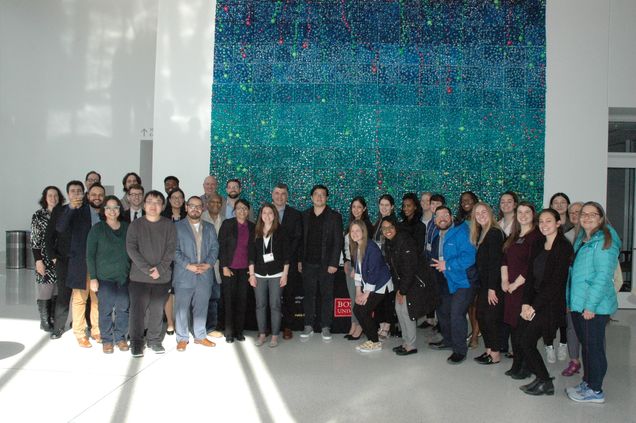
On Saturday, April 27, 2019 BUCPUA students in the Urban Studies Capstone class presented their final capstone presentations to their peers, BUCPUA faculty, and guests. Throughout the semester, students worked in teams to build a project relating to current Boston issues, working towards real solutions for everyday planning problems. The capstone presentations are the culmination of the student’s time in BUCPUA and they proudly presented on their passions.
Dr. Madhu Dutta-Koehler opened the day with her optimism for the students who are on their way to becoming great planners. Dr. Dutta-Koehler thanked the students for their commitment and hard work throughout the semester, reminding them to do right by the people and places they are planning for. Student presentations commenced after Dr. Dutta-Koehler expressed how their “projects [are] to create action-oriented projects that matter.”
Capstone student Matt Smith introduced eight current, sustainable Transit Oriented Development (TOD) projects in the Greater Boston Area before handing the floor over to the first capstone group.
The first presentation discussed concerns for the lack of connectivity of Newton’s Riverside Station with the surrounding village. Students researched ways to prioritize a Transit Oriented Development through multi-modal access in the station. The group recommended creating marked bike lanes, repairing sidewalks, removing on-street parking, installing more street lights, and creating more frequent and reliable bus lines. Their main concern with this project was the financial feasibility of creating more bus routes.
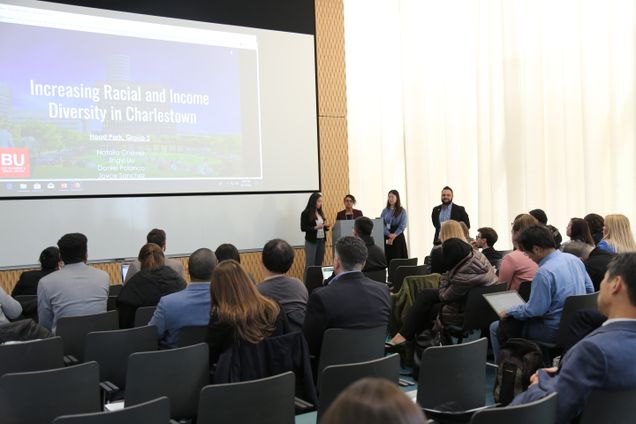
The next group presented on ways to maximize the use of public transportation for work-related trips. The presentation suggested that Newton shift the current development paradigm over to creating a regional development strategy, locating more residencies closer to job opportunities. The group specifically researched regional commuting behaviors -- an average commute on the MBTA from Riverside is 56 minutes -- and the implementation of a Transit Oriented Development.
The last presentation on Newton argued for community connectivity in Riverside using mode shift and site design. The area is a typical suburban development where one needs a car to get to transit sites, classifying Riverside as a Transit Adjacent Development (TAD) without amenities, rather than a Transit Oriented Development. The group posed the question: How do we reconfigure a TAD to make a TOD and achieve connective community in auto dependent places? The group’s recommendations to achieve this include eliminating parking minutes, locating the station at a focal point, and redesigning Groves Street. The goal is to combine multimodal physical entities with social human interactions to create community connectivity among people who do not know each other personally.
The next set of presentations emphasized plans for Malden’s accessibility and employment. The first presentation focused its concerns on Malden’s employment of the “missing middle,” explaining how many Malden residents are educated but below the poverty line. The group created a workforce development plan with substantial reasoning for potential aerospace industry jobs. The group discussed how a commercial street corridor framework plan with economic and transportation development can maximize employment benefits for Malden’s missing middle, but would need to be wary of gentrification. The following group focused on the Malden River, proposing actions for community development and connecting residential area to the river.
Another group identified and analyzed the impacts of planning initiatives along the Rutherford Avenue Corridor in Charlestown, Boston. They examined both positive and negative effects ranging from connectivity to land use practices near the corridor. The group then identified gaps between three of the studied plans and addressed neighborhood concerns through policy recommendations.
The following group articulated the impacts of Transit Oriented Development on public health as an understudied topic. Their research evaluated the Hood Park Project in Charlestown,
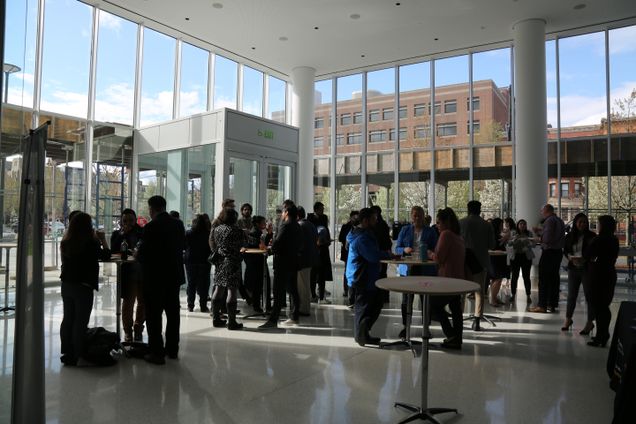
MA in terms of TOD practices that are known to have a positive impact on public health. The group then developed recommendations to address the two gaps in the environmental impacts of the development’s framework -- including the heat island effect and vehicle emissions. Recommendations included improvements to tree canopy coverage, square footage of parks, walkability, bikeability, and access to transit. These infrastructure improvements to Hood Park can increase public health benefits for residents of Charlestown.
The final group presented their development project pathway for Charlestown to integrate affordable housing units. The group closely studied the design of affordable housing in the Hood Park development, the Sullivan Square Design Project, and the Beacon Yards redevelopment. The recommendations made by students promote equity and diversity in Charlestown.
After the final presentation, there was a reception to celebrate student's final course achievements and Collin Yip, founder of Rafi Properties and BU alumnus, handed out Certificates of Appreciation to graduating UPA Officers. Students, faculty, and guests mingled over the presentations and exciting next step of the BUCPUA program.
After an insightful night, students are now able to use what they have learned outside of the classroom, implementing their ideas into the world. As Dr. Madhu Dutta-Koehler had stated in the beginning of the evening, “the time to act is now [and] in the end, knowledge has its applications.”
Delanie Fico, CAS '21
Stadtbummel in New York City
*Stadtbummel is the German word for a stroll in the city
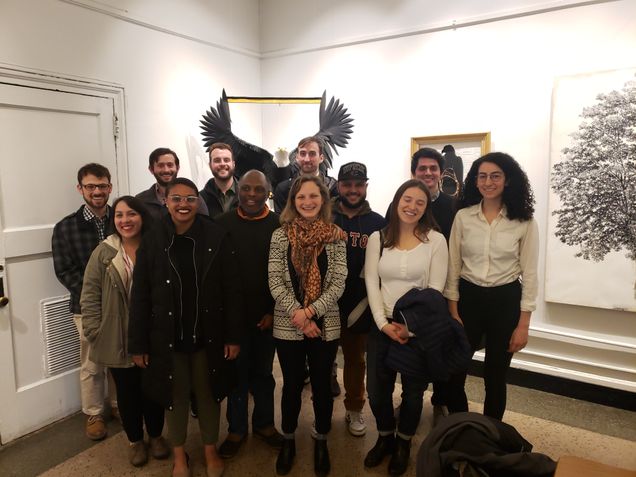
The Boston University Urban Planning Association sponsored and organized a professional trip to New York City to gain insight on urban development and potential career paths after graduation. After months of planning, ten students joined UPA for the trip on April 4th-5th, which was led by UPA board members Joyce Sanchez and Ben Cares.
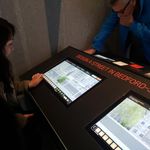
April 4th -- NYC Department of Parks and Recreation. Trip participants met with Julia Wagner, Project Planner, Sarah Neilson, Chief of Policy and Long-Range Planning, and Lia Soorenian, Project Planner, who all discussed their current projects, recent initiatives, and their published reports concerning open space in the City. Afterwards, the UPA visited the Museum of the City of New York: New York at Its Core, Future City Lab.
April 5th -- UPA visited Ollie: All inclusive co-living, Alta Apartments. Ryan Murphy, Corporate Partnerships Manager, guided UPA through Ollie’s newest developments, Alta, and discussed the benefits and challenges of providing all-inclusive living in one of the most expensive cities in the world. The next stop was the NYC Department of Planning in the Bronx. The UPA sat down with Michael Kavalar, Senior City Planner, and Oscar Oliver-Didier, Senior Urban Designer, to discuss upcoming planning projects and initiatives happening in the Bronx and the potential impacts the projects could have on quality of life and affordability in the area.

Joyce Sanchez, MUA ‘19
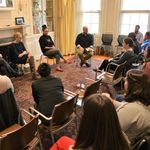
Tackling Climate Changed at #BUCPUA Keynote Lecture and Discussion
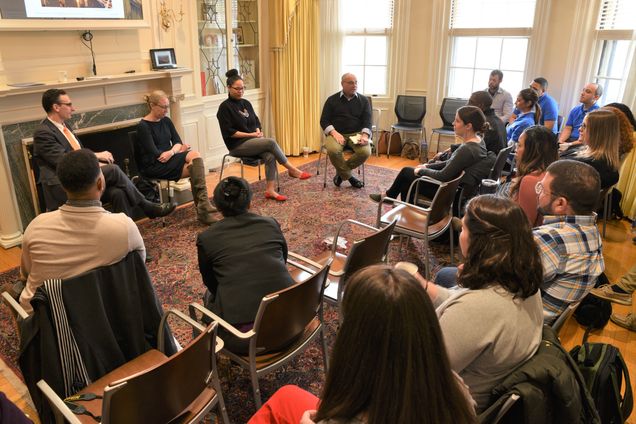
BOSTON -- On Friday, April 5th, the Boston University City Planning and Urban Affairs Program hosted the #BUCPUA Keynote Lecture and Panel Discussion. The lecture, Climate Changed: Politics, Place, People, and Planning, featured Massachusetts State Representative Tommy Vitolo, Ph.D., and panelists Eugenia Gibbons and Julie Conroy, AICP, and was moderated by Bruce Gellerman.
Representative Vitolo kicked-off the lecture and discussion by addressing energies past, present, and future and how energy consumption has changed over time. Rep. Vitolo pointed out that energy consumption follows the economy, stating that in times of economic hardship (Great Depression, World War II), less energy is consumed. He also stressed the importance of finding cost effective and scalable renewable energy, and of controlling our own demands for renewable vs fossil fuel energy. He ended his lecture by defining climate change as the major problem of our time, and urged the audience that our greatest hope for change lies in public policy.
“Start locally,” urged Rep. Vitolo, “and at the bare minimum participate in democracy.” Rep. Vitolo told the audience to at the very least vote for the president, and then go further to vote locally. He stressed the importance of raising your voice, getting involved, and calling your representatives.
After the lecture, Rep. Vitolo joined Eugenia Gibbons, Policy Director at Green Energy Consumer Alliance, and Julie Conroy, AICP and Climate Team Project Manager at Kleinfelder, for a lively panel discussion moderated by WBUR Environmental reporter Bruce Gellerman. The panel discussion centered around energy efficiency, combating climate change, and the future of cities.
Rep. Vitolo addressed that current energy storage is expensive and inefficient, and that one of many results of this inefficiency is the overconsumption of fuels which leads to the rising of sea levels in coastal areas. The panelists pointed out that areas of Boston and Cape Cod will be underwater in the near future if a green solution is not found.
Rep.Vitolo and Ms. Gibbons both pointed to transportation as this solution. They discussed introducing electric cars, scooters, and bikes to cities as a means to cut down on collective greenhouse gas emissions. Ms. Conroy spoke to the future of cities stating that the current state of the environment will lead to us seeing more green infrastructures and resilient cities, a trend of bringing nature back into city spaces, and an increase in strict energy standards for taller buildings.
The panel was followed by a networking lunch where attendees continued the discussion with the participants and fellow attendees. Many noted that this was the most interesting and entertaining lecture and discussion they had been to in a long time.
To view Rep. Vitolo's presentation, please click here.
-Andrea Ciminelli